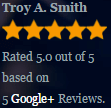It has become clear that we’ve entered a new era regarding the way society handles the consequences of sexual misconduct. As new generations emerge, women’s rights movements and organizations rise. A microscope is held over anyone that has been even slightly sexually aggressive towards women or men. With the emergence of this movement, more sexual harassment allegations have surfaced now than ever before. Sexual assault, rape, or harassment is never, under any circumstances, okay in the eyes of the law or society. However, people accused of rape must undergo the same judicial procedures to be proven guilty just like any other crime. Facing rape charges in the state of New York? There are a few things you need to be aware of. Here are five facts you need to know about New York sexual assault laws, as well as the different degrees of rape.
Five Facts About New York Sexual Assault Laws
- New York defines rape as “non-consensual sexual intercourse committed against the victim through physical force or some other duress (including threats or use of drugs).”
- The state deems any person 17 years old or younger as “incapable of consent” for purposes of the law.
- New York recognizes statutory rape as someone of the legally consenting age having sex with an individual under the age of consent (17 years old). Regardless if this is consensual, it’s still statutory rape under the law.
- It defines sexual abuse on a wide range of different conducts. Generally, it is defined as “subjecting another person to sexual contact without their consent.”
- New York defines sexual contact as “any touching of the sexual or other intimate parts of a person for the purpose of gratifying sexual desire of either party.”
The state sees rape charges as serious and threatens strong consequences for these actions. New York recognizes three degrees of rape which range in harshness, severity, and punishment. These three degrees of rape in the state of New York are stated below exactly as they are presented in the state’s penal codes. After the description of each degree of rape, you’ll also find information on the possible penalties and sentences of a guilty conviction.
Third Degree Rape
Facing third-degree rape charges means that you could potentially be guilty of engaging in sexual intercourse with another person:
- Who is incapable of consent by reason of some factor other than being less than 17 years old;
- Who is less than 17 years old, and the defendant is 21 years old or more; or
- Without such person’s consent, which is withheld for some other reason than incapacity to consent.
Third Degree Rape Sentence/ Penalty: Class E felony (up to 4 yrs. in prison and up to $5,000 in fines)
Second Degree Rape
Facing second-degree rape charges means that you could potentially be guilty of engaging in sexual intercourse with another person:
- Who is less than 15 years old and the defendant is 18 years old or more; or
- Who is incapable of consent by reason of being mentally disabled or mentally incapacitated.
Second Degree Rape Sentence/Penalty: Class D felony (1 to 7 years in prison and up to $5,000 in fines)
First Degree Rape
Facing first-degree rape charges means that you could potentially be guilty of engaging in sexual intercourse with another person:
- By “forcible compulsion” — compelling the victim through the use of physical force or the threat of immediate death, physical injury or kidnapping;
- Who is incapable of consent by reason of being physically helpless;
- Who is less than 11 years old; or
- Who is less than 13 years old and the defendant is 18 years old or more.
First Degree Rape Sentence/Penalty: Class B felony (5 to 25 yrs. in prison and up to $5,000 in fines)
Defenses to Rape Charges
There are a few plausible defenses to rape charges. If you feel your circumstance falls into one of these descriptions, you could possibly be relieved of these charges.
- If you were unaware of the victim’s incapacity to consent because you suffer from a mental disability, mental incapacitation, or physical helplessness
- You have a valid medical or health care purpose
- If you were less than four years older than the victim at the time of the incident. This is specifically for second-degree rape.
- You are the spouse of the victim and the victim is deemed incapable of consent due to age, mental health, or other restrictions.
Regardless if you feel you have a legitimate defense, like the defenses described above, or if you simply feel your charge is unjust, it’s important to speak with a defense attorney. The state of New York takes any sexual assault, rape, or sexual harassment charge very seriously. It’s important for you to have proper representation. Call a defense attorney today to understand more about your options.












